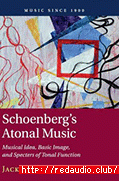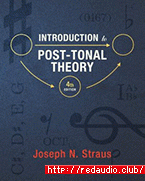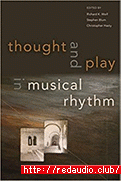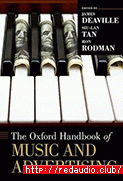Award-winning author Jack Boss returns with the 'prequel' to Schoenberg's Twelve-Tone Music (Cambridge, 2014) demonstrating that the term 'atonal' is meaningful in describing Schoenberg's music from 1908 to 1921. This book shows how Schoenberg's atonal music can be understood in terms of successions of pitch and rhythmic motives and pitch-class sets that flesh out the large frameworks of 'musical idea' and 'basic image'. It also explains how tonality, after losing its structural role in Schoenberg's music after 1908, begins to re-appear not long after as an occasional expressive device. Like its predecessor, Schoenberg's Atonal Music contains close readings of representative works, including the Op. 11 and Op. 19 Piano Pieces, the Op. 15 George-Lieder, the monodrama Erwartung, and Pierrot lunaire. These analyses are illustrated by richly detailed musical examples, revealing the underlying logic of some of Schoenberg's most difficult pieces of music.
屡获殊荣的作家 Jack Boss 带着勋伯格十二调音乐(剑桥,2014 年)的“前传”回归,表明“无调性”一词在描述勋伯格 1908 年至 1921 年的音乐时意义重大。这本书展示了勋伯格的无调性音乐如何 根据音高和节奏动机的连续性以及音高级别的设置来理解,这些设置充实了“音乐理念”和“基本形象”的大框架。 它还解释了音调在 1908 年之后在勋伯格音乐中失去其结构性作用后,如何在不久之后重新作为一种偶尔的表现手段重新出现。 与其前身一样,勋伯格的无调音乐包含对代表作品的仔细阅读,包括作品。 11 和作品。 19 钢琴作品,作品。 15 George-Lieder、独角戏 Erwartung 和 Pierrot lunaire。 这些分析通过丰富详细的音乐例子来说明,揭示了勋伯格一些最困难的音乐作品的基本逻辑。


 Key*** 25元 购买了 月费VIP 会员
Key*** 25元 购买了 月费VIP 会员 MUD*** 25元 购买了 月费VIP 会员
MUD*** 25元 购买了 月费VIP 会员











共有 条评论